Very few people manage to avoid being bitten by insects.
This issue becomes even more pressing in summer.
Sometimes it’s quite hard to identify what exactly bit you.
The bite might hurt, itch, or even swell.
There are many different insects, and they all transmit different diseases, so it’s very important to correctly identify what bit you.
But don’t panic! We have created a little guide that will help you identify which insect attacked you.
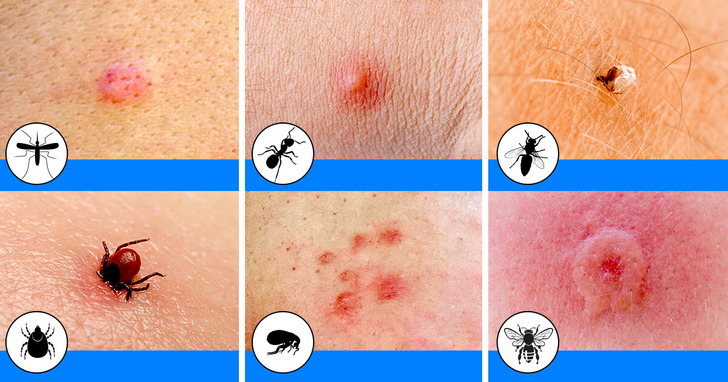
Hornet
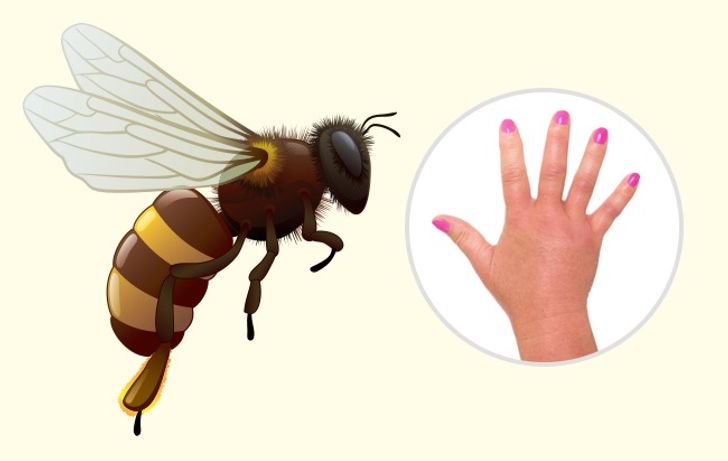
The area that was stung by a hornet becomes red and seriously swollen.
Blisters might appear.
The victim feels very bad pain, even worse than the pain from a wasp sting.
The hornet’s poison is even more toxic because the insect itself is bigger in size.
The poison contains histamine and acetylcholine.
If the victim feels cold in the limbs, his or her ears and lips go blue, or breathing problems start, the victim must see a doctor.
Bee
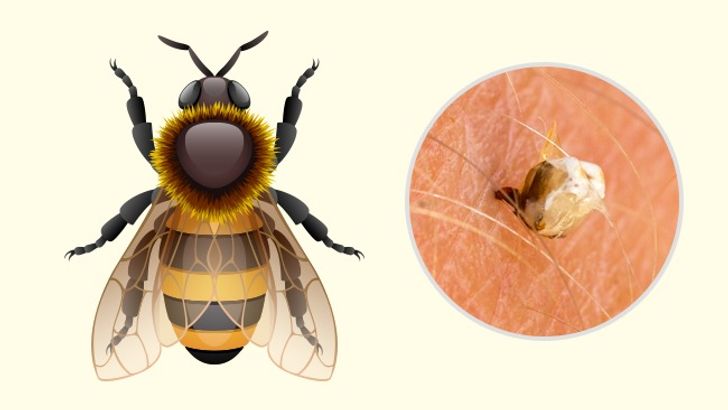
You need to remove the sting that might still be in the attacked spot.
The skin usually gets red and swollen. A person feels burning, a sharp pain, and a severe itch appears a little later.
If you are not allergic, this is where your troubles end.
However, if a person is allergic to bee poison, he or she might have breathing problems, which is a serious concern.
Wasp
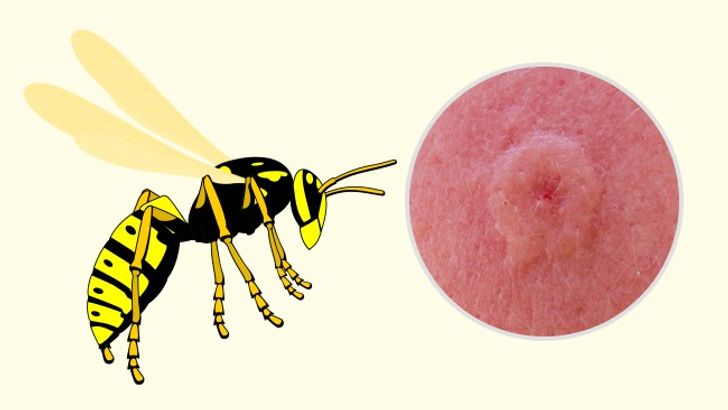
The symptoms of a wasp sting are like those after a bee attack.
The stung area becomes red and swollen, the victim feels pain and burning, and terrible itching comes later.
There might even be a hemorrhage on the skin. A wasp can sting multiple times.
Just like with a bee attack, it’s very important to know if you are allergic as there may be an anaphylactic shock.
Mosquito
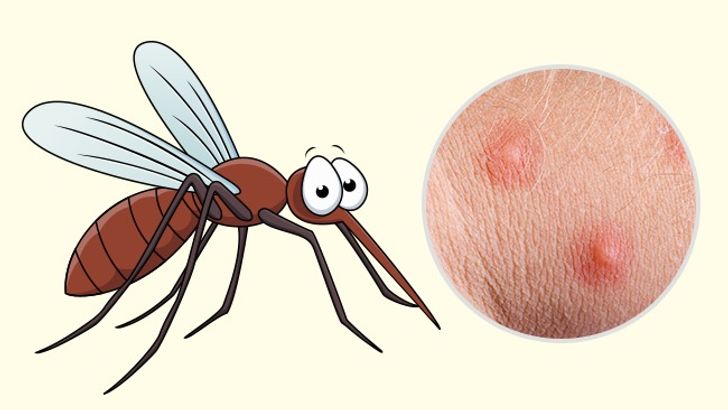
Mosquito bites look like swollen red spots the size of a berry.
Most often they appear in open areas of the body.
Mosquitoes bite the spots where the skin is very thin and it’s easy to get to the blood vessels. When they bite, they inject their saliva into the wound.
The saliva contains anticoagulants that make the blood thinner.
They cause the skin to become red, to itch, and to swell.
Tick
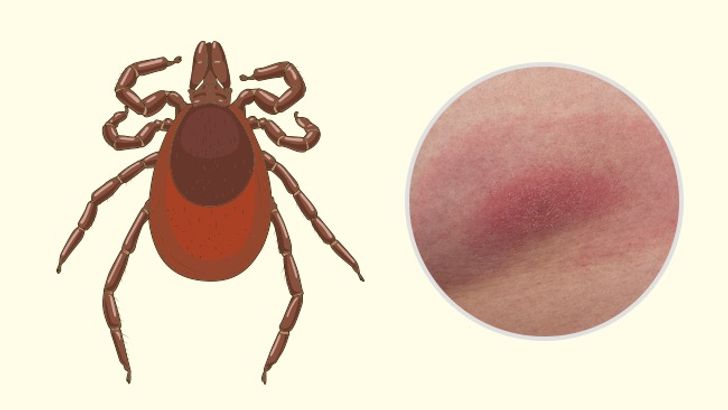
The body’s reaction to a tick bite is a red spot.
The insect can be in the victim for a long time, growing bigger and drinking blood.
The worst thing is that ticks infect people with encephalitis, borreliosis, and many other diseases.
If you remove the insect from your body but the red spot doesn’t go away and continues to grow, you have to see a doctor as quickly as possible.
Flea
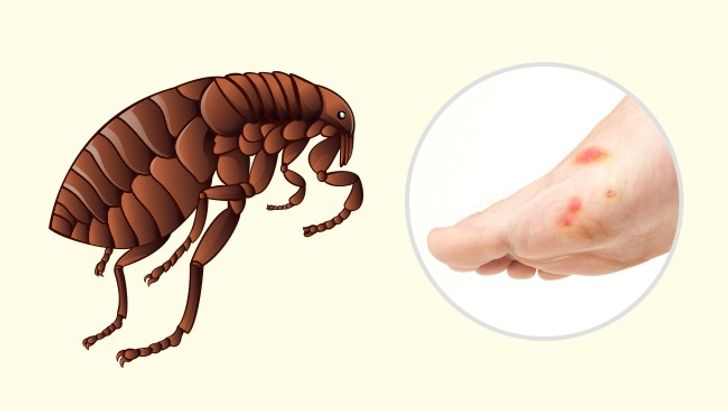
Flea bites can easily be mistaken for allergies or mosquito bites because the bitten spots also look red and swollen.
However, unlike mosquitoes, these insect bites are very painful, and the itch is much worse.
Fleas usually attack the legs, and only a sleeping person can be a victim.
One insect can bite several times, so the distance between the red spots is usually from 0.5 to 1 inch (1 to 2 cm). Fleas transmit many serious infections.
Ant
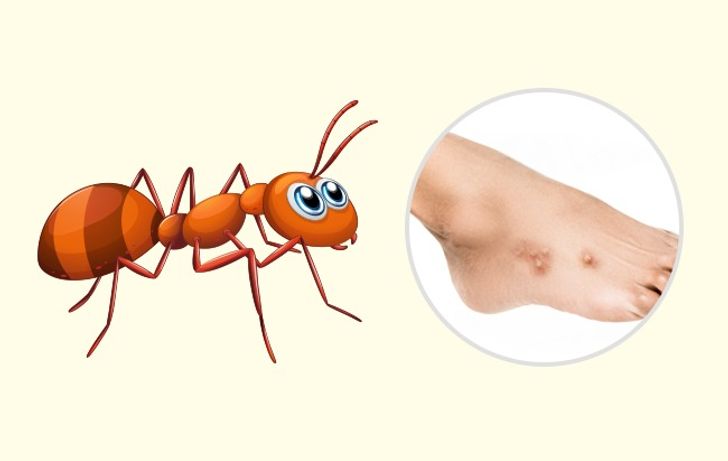
Most ants don’t present any danger to humans. However, the red fire ant can cause a lot of trouble.
Pustules appear on the bitten spots that will later turn into scars. T
he ants’ poison contains toxins, so the victim might have an allergic reaction or an anaphylactic shock.
A thatching ant’s bite is less dangerous. It looks a lot like a mosquito bite. A pink spot appears in the bitten area that itches for a long time.
At the moment of the bite, the victim feels a burning pain as though some boiling water was poured on the skin.
Cleg
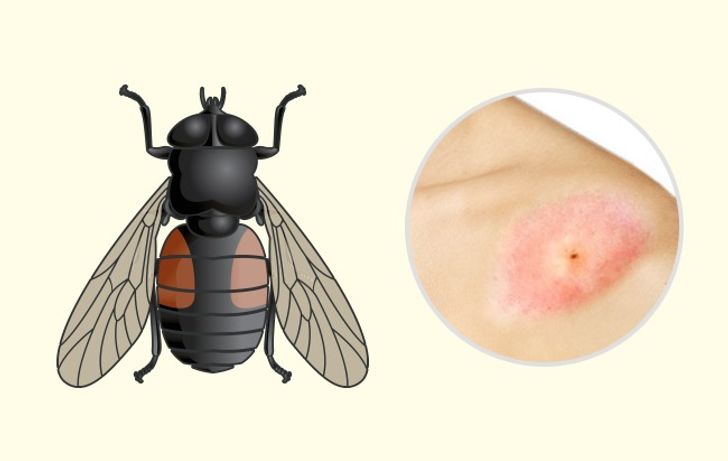
A cleg looks like a big fat fly. Unlike flies, clegs bite very painfully and drink human blood.
At first, a small red spot appears not more than 0.03 inches wide (1 mm). Then it gets swollen and starts to itch.
Clegs transmit different diseases like tularemia and anthrax, but most of the time they attack cattle rather than people.
Louse
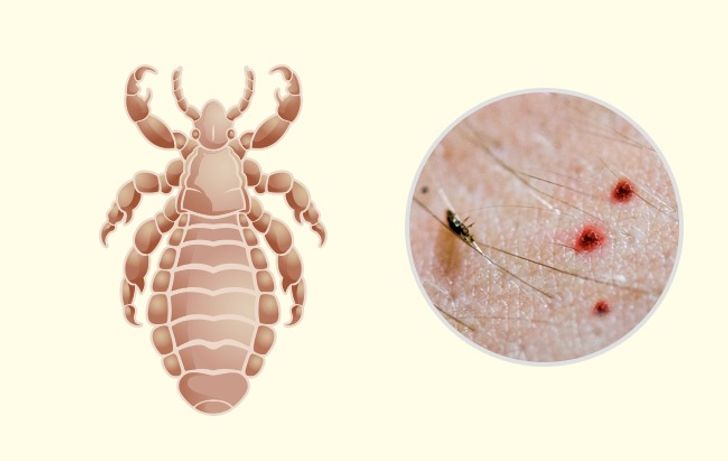
If you notice small red dots that look like mosquito bites in the places where hair grows — on your head, your neck, and behind your ears — it means that you have been bitten by head lice or pubic lice.
If such dots appear on your back, belly, hands, or legs, they must have been cooties.
The bites are a few inches away from each other, and the skin looks like it was pierced.
Lice transmit very serious diseases like trench-fever and typhoid.
Bed bug
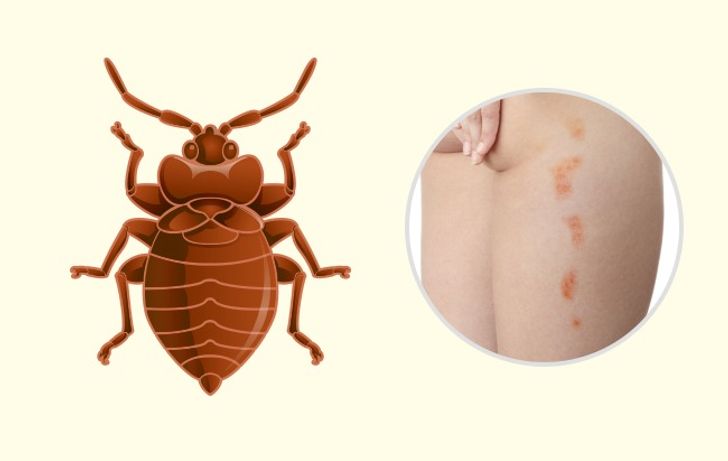
At first sight, bed bug bites look like flea or mosquito bites or an allergic reaction.
The skin becomes red, swollen, and starts to itch. However, there is a way to recognize the bed bugs’ “work.”
The bites are very close to each other and look like little roads on the skin.
Bed bugs’ bites are more painful than mosquitoes’.
The numerous roads can be noticed in the morning as bed bugs hunt at night.
Don’t forget to share the article with your close ones!













